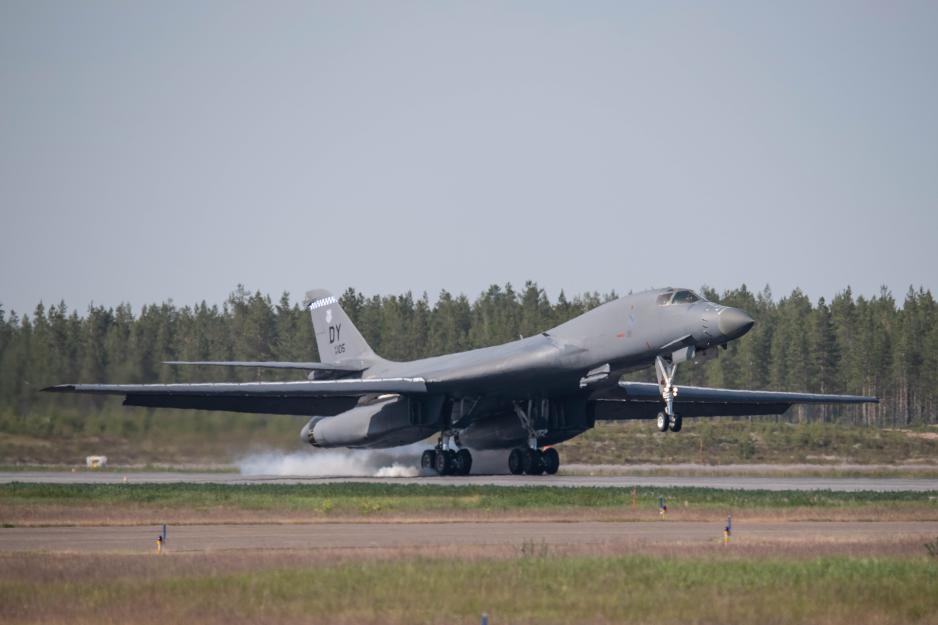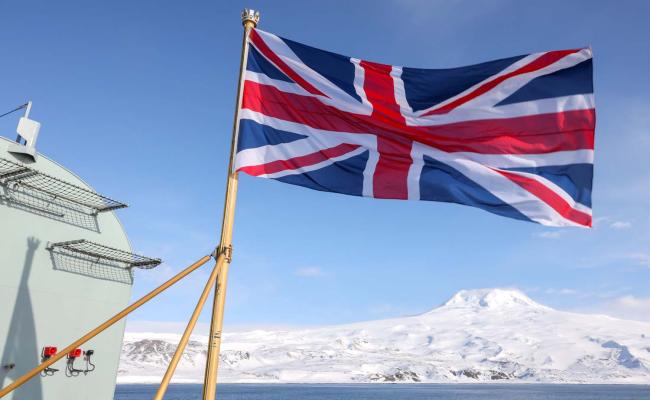Sweden and the US Signs Defense Cooperation Agreement

Sweden's Minister of Defense (Moderates) and the US Minister of Defense Lloyd Austin (Democrats) in the Pentagon at the signing of the bilateral defense cooperation agreement (DCA). This week, Jonson is in the US to strengthen Swedish-American collaboration and promote Swedish defense innovation. (Photo: US Department of Defense)
Sweden and the USA's newly signed defense cooperation agreement outlines that US forces will have unimpeded access to 17 military bases on Swedish soil. Four of these are in Northern Sweden. The agreement also opens up for wide US authority and criminal jurisdiction.
The countries' MoDs signed the new Swedish-American defense cooperation agreement (DCA) on Wednesday.
The agreement regulates US access to base areas, the legal status of US forces, and the advance storage of defense materiel in Sweden.
Following the DCA, the US will have unimpeded access to and use of 17 Swedish military bases – so-called "agreed facilities and areas". Four of these are located in Northern Sweden (see overview below).
In these areas, the US will be able to train and exercise, deploy forces, and preposition defense materiel – together with Sweden. Within and in the immediate vicinity of such areas, US forces may exercise authority for security reasons.
By extension, it is possible for the US to gain exclusive access and right of use to parts of the areas by special agreement.
It is also significant that the US gets the first right to prosecute American forces who commit offenses in Sweden both on and off duty.
According to SVT, approval of the agreement requires a two-thirds majority in the Swedish parliament, the Riksdag. It must also consider which constitutional amendments are necessary to implement the agreement. Processing in parliament and entry into force should be possible by the end of 2024, claims the Swedish MoD.
Swedish-American agreed areas in the North:
- Kiruna: Military camp and exercise area, Norrbotten's regiment I 19.
- Boden: Regimental area and exercise area, Norrbotten's regiment I 19.
- Vidsel: Air base and test range, Norrbotten Wing F 21.
- Luleå-Kallax: Air base, Norrbotten Wing F 21.

In June, two American B-1B Lancer strategic bombers landed at Lulelå-Kallax Air Station in Northern Sweden for the first time. Now, this base is intended as a Swedish-American agreed area. (Photo: Jesper Sundström/the Swedish Armed Forces)
In the Nordic context
Sweden is among several Nordic countries to follow in Norway's footsteps, whose new DCA with the US entered into force in the summer of 2022. Through this, four military bases, two of which are in Northern Norway, have become "agreed areas."
Through the negotiation process, Sweden has received a lot of help from Norway and discussed questions about e.g. agreed areas with both the Norwegian and Finnish sides, said the Swedish MoD Pål Jonson to VG earlier this fall.
Bilateral defense cooperation with the US was also discussed at the recent Nordic defense ministerial meeting within NORDEFCO.
Sweden has also walked hand-in-hand with Finland in this context. Helsinki will presumably sign a DCA with Washington DC shortly, while Denmark is still negotiating with the American side.
As High North News has previously reported, this type of agreement is intended to provide quicker and more efficient American support in the event of a crisis or war. Still, it can also facilitate an unpredictable presence in the Nordic region.

Sweden's MoD Pål Jonson has discussed matters around bilateral defense cooperation with the US with both Norway's MoD Bjørn Arild Gram (Center) and other Nordic colleagues. Here from a meeting between them in Oslo on November 1st. (Photo: Asgeir Spange Brekke/the Norwegian Ministry of Defense)
Object of criticism
The Swedish-American agreement is largely similar to the Norwegian-American one regarding the US' extended access to exercise authority and criminal jurisdiction.
"Power can thus be used by any member of the American forces against Norwegian civilians to restore order or protect the force," Judge Advocate General Sigrid Redse Johansen wrote in a hearing response.
According to both DCAs, American security measures must be "necessary and proportionate," but these conditions can be subject to different views.
“In cases where differing approaches to the threat perception or what constitutes proportionate measures are taken to the extreme, Norwegian authorities do not have veto right,” Redse pointed out.
In both agreements, the USA is also given primary jurisdiction in all criminal cases unless Norway or Sweden revokes this in special cases.
Leaving it to the US to pursue serious criminal cases against American soldiers where Norwegian citizens have been offended could run counter to the Norwegian sense of justice, said the Director of Public Prosecutions Jørn Sigurd Maurud.

Boden garrison is also pointed out as a Swedish-American agreed area. This is the headquarters of Norrbotten's regiment l 19 and one of Sweden's largest garrisons. Here, US forces, if the DCA is ratified, will be able to train and exercise, be deployed on a rotational basis, and preposition defense materiel – but not nuclear weapons. (Photo: David Kristiansen/the Swedish Armed Forces)
Will not allow nuclear weapons
According to the U.S.-Sweden DCA, American forces will have exclusive control over the access to and use of prepositioned defense materiel. Still, they must notify the Swedish Armed Forces in advance of the type and quantity of material that they bring into Sweden.
Nuclear weapons are not explicitly mentioned in the text of the agreement, but at the outset, it is stated that "[a]ll activities under this Agreement shall be conducted with full respect for the sovereignty, laws, and international legal obligations of Sweden, including with regard to the stockpiling of certain types of weapons on Swedish territory."
To SVT, MoD Pål Jonson says storing nuclear weapons on Swedish soil is out of the question:
"The Swedish position is well known. We see no need or reason to have nuclear weapons on our territory, and the US has also said that they respect that," Jonson told the Swedish broadcaster.
In contrast, nuclear weapons are explicitly mentioned in the Norwegian-American defense agreement: “Nothing in this Article [on prepositioning of defense materiel, ed. note] alters Norwegian policies with regard to the stationing of foreign forces on Norwegian territory, and the stockpiling or deployment of nuclear weapons on Norwegian territory.”
At the same time, the US also has exclusive control over the material according to this agreement, so both Norway's and Sweden's ability to control the US import of weapons seems very limited.





